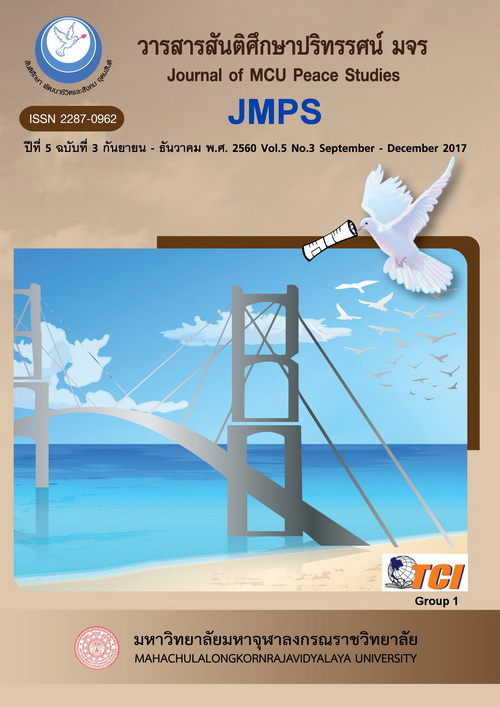The Guideline for Promoting Mekong Tourism Policies and Practices in Thailand
Main Article Content
บทคัดย่อ
This research aims to study the policy and operational guidelines for tourism along the Mekong River in Thailand. This study using mixed method research consists of qualitative research by using in-depth interviews 34 of government officials, 7 entrepreneurs, and quantitative research. The 400 tourist questionnaire on the Mekong River was used to ask for tourists' opinion about how relevant to qualitative data from in-depth interviews. The statistics used for data analysis are frequency and percentage of data. The study results that Guidelines for promoting Mekong tourism policies and practices in Thailand as follow; for the government should 1) Promote and support government policies and tourism budgets. Develop areas in tourist attractions, basic structure, infrastructure and facilities. 2) Development of arts, culture and Ecotourism and set up a committee to supervise together with community. 3) Support experts and tourism professionals, culture, and production of tourism products and services. 4) Increase public relations of major tourist attractions in the area and Travel information arrangement. 5) Create cooperation between the government, private sector and community to develop the image of tourist attractions and community. 6) To provide training, knowledge and practice on tourism promotion for entrepreneurs and the public. Develop tourist attractions to be clean, tidy and safe. 2. Private sector should 1) Support and promote the aggregation of boat tour operators and set up community enterprises as well as SMEs for tourism in the community. 2) To provide services to tourists as well, to be generous and to help promote important tourist destinations in the area. 3) To improve the conditions of the boat tours, security, beautiful looks and always ready to use. 4) Always improve navigability and find new routes.
Article Details
ทัศนะและความคิดเห็นที่ปรากฏในบทความในวารสาร ถือเป็นความรับผิดชอบของผู้เขียนบทความนั้น และไม่ถือเป็นทัศนะและความรับผิดชอบของกองบรรณาธิการ ยินยอมว่าบทความเป็นลิขสิทธิ์ของวารสาร


